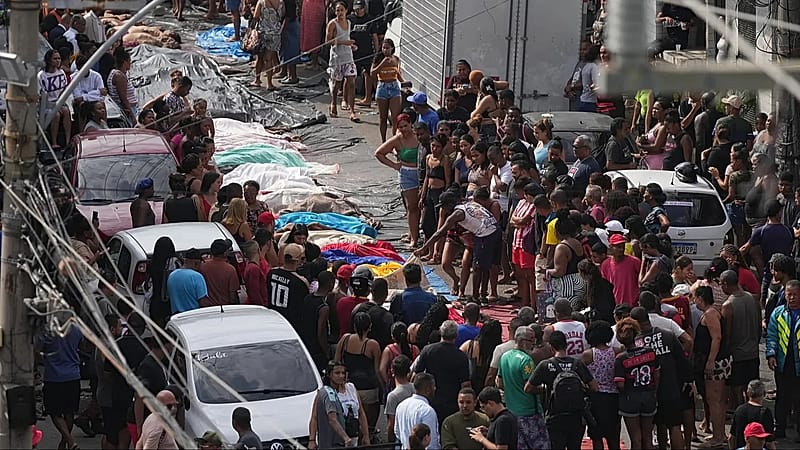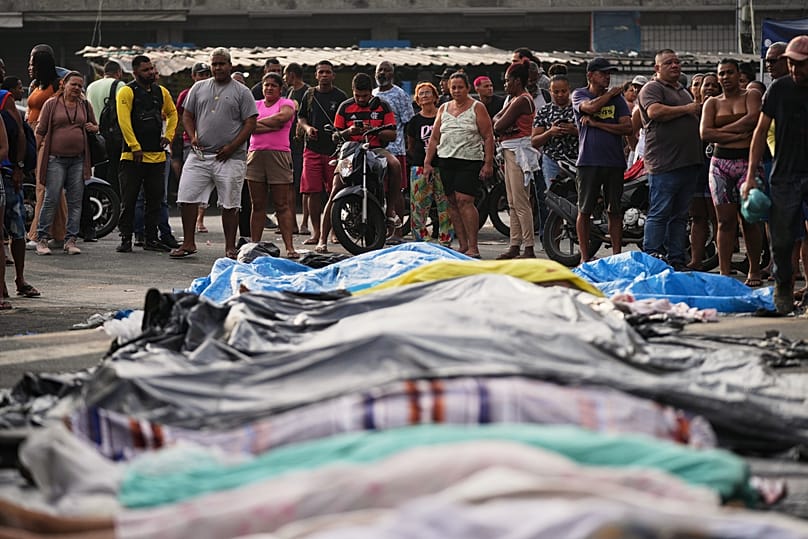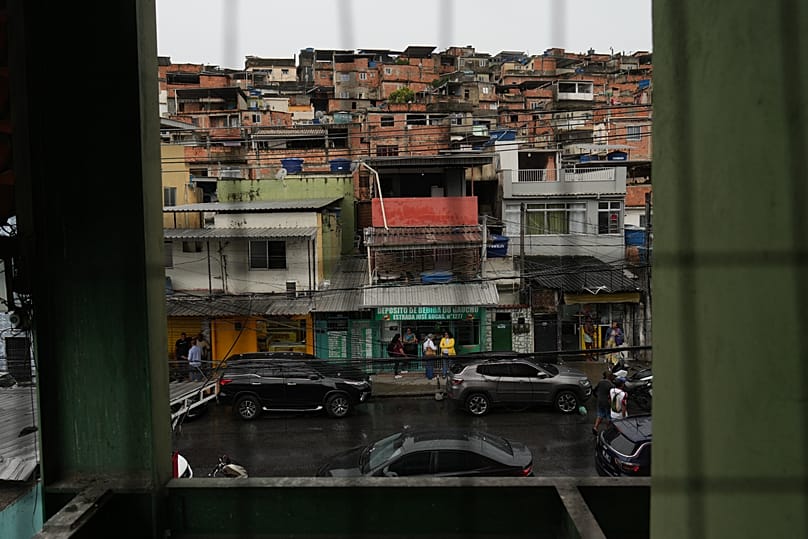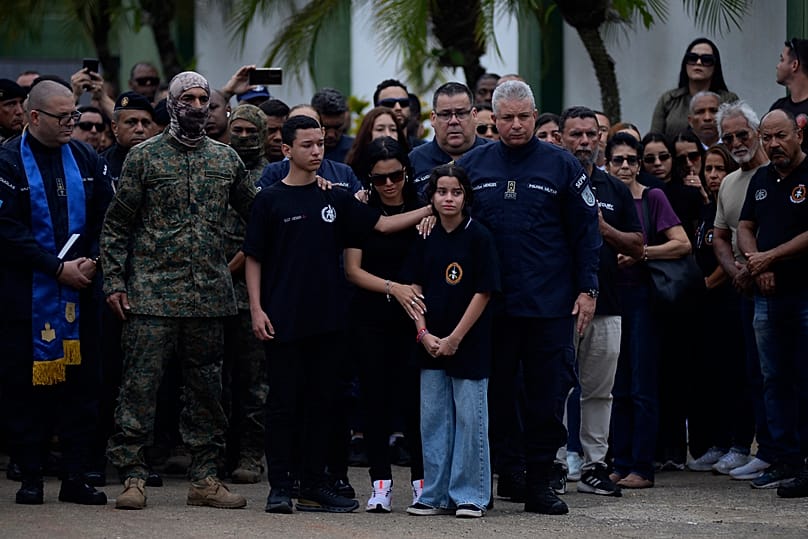
Families of the scores of people killed in a deadly gang raid by Rio de Janeiro police have begun burying the dead, with residents left reeling by the scenes of carnage and angry at law enforcement whom they accuse of excessive force, torture and extrajudicial killings.
At least 132 people were killed during Tuesday’s operation, including four policemen, according to a tally by Rio de Janeiro's public defenders' office.
A day after a raid that many described as like a war, the low-income favela neighbourhood showed signs of a return of everyday activities, with a few restaurants and shops once again awaiting customers.
"I came to work because I have to, but my mental health is shattered," said Monique Santiliano, a 40-year-old local who runs a nail salon.
"This wasn't an operation, these were assassinations. They didn't come to arrest, they came to kill."

Tuesday's raid, conducted by some 2,500 police and soldiers, targeted the notorious gang Red Command in the Complexo de Alemao and Complexo da Penha favelas.
The operation's stated objectives were capturing leaders and limiting the territorial expansion of the Red Command gang, which has increased its control over favelas in recent years.
The organised crime group has also expanded its presence across Brazil in recent years, including in the Amazon rainforest.
It drew gunfire and other retaliation from gang members, sparking scenes of chaos across the city on Tuesday.
The state government said those killed were criminals who resisted the police.
Conservative Rio state governor Claudio Castro said on Tuesday that the city was at war against "narco-terrorism," a term that echoed the Trump administration in its campaign against drug smuggling from Latin America. He touted the operation as a success.

Human Rights Minister Macaé Evaristo told residents and journalists that she did not accept that claim and that the fight against organised crime should target masterminds and financiers.
"There's no point in coming into our communities and exposing children, the elderly and people with disabilities to such terror," she said.
The death toll, the highest ever in a Rio police operation, prompted condemnation from human rights groups, the United Nations and intense scrutiny from authorities.
Brazil's Supreme Court, prosecutors and lawmakers ordered Governor Castro to provide detailed information about the operation.
Supreme Court Justice Alexandre de Moraes scheduled a hearing with the state governor and the heads of the military and civil police next Monday.
While some in Brazil, particularly right-wing voters and politicians, applauded the operation against the heavily-armed gang, others questioned whether it would achieve lasting results and argued that many of those killed were low-ranking and easily replaceable.
Otoni de Paula, a conservative lawmaker, said the disparity between the number of deaths of police officers and of suspects at the very least raises questions.
"I think we're dealing with an ambush whose sole objective was execution," he said. "We cannot think that the state can grant the police the right to kill anyone."

Residents decried the state of the bodies, with at least one decapitated, while others were reportedly found with puncture wounds or tied up.
"This brutality cannot be normalised just because it happened here. If the country continues to applaud, it will happen elsewhere," said Ana Tobossi, an activist and local resident.
Paulo Roberto, a 16-year-old who works as a street vendor at the Maracana football stadium, said that he had been left shaken by events.
"People from outside are going to see this going on in favelas and aren't going to want to come anymore. It makes us look bad," he said.







